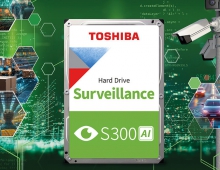
Toshiba, NEC tie up with Chinese firms in latest technology
Toshiba Corp and NEC Corp have formed tie-ups with leading Chinese firms in cutting-edge technology in a bid to raise their cost competitiveness. Partnerships between Japanese and Chinese firms have largely centered on home appliances, but in the wake of rapid technological advances in China, Japanese firms are now seeking Chinese partners that boast technological prowess in high-tech fields.
Toshiba plans to jointly develop with Shenyang-based Neusoft Corp, China's largest software developer, software to be equipped in digital home appliances like digital televisions and DVD recorders. The digital TV software is targeted for use in China's terrestrial digital broadcasting, slated to begin nationwide as early as 2010. DVD recorders will be exported to the US, Europe and other regions as well.
On April 1, Toshiba will set up a software development center within a local manufacturing subsidiary located in the Chinese city of Dalian. Toshiba and a Neusoft group firm will dispatch roughly 50 engineers each to the center to jointly develop software. The partners plan to increase the number of engineers to about 500 in 2005.
Neusoft was launched in 1991 as a university-based start-up and has grown rapidly due to its technological ability. The company had sales of about 28 billion yen in 2001. Through joint development, Toshiba aims to reduce development costs and the time to market product by 30-50% compared with going it alone.
NEC has begun selling in Japan and the rest of Asia the latest communications equipment procured from China's largest communications device maker, Shenzhen-based Huawei Technologies Co Ltd.. The products include routers and other core devices for Internet access, as well as communications gadgets for ground stations complying with the cdma2000 standard used for third-generation cellular phones. NEC will recommend Huawei products when discussing broadband networks and cellular phone networks with client firms.
Huawei has a huge share of the Chinese market for cell phone ground station facilities, raking in some 300 billion yen in sales from such products in 2001. Some of its products compete with NEC's, but Huawei's goods are more than 10% cheaper than those made by Japanese, European or U.S. firms. For this reason, NEC felt that using Huawei's products would help NEC boost its price competitiveness when building computer systems. It aims to boost revenue through software-related services like building communications networks.
Conventional tie-ups between Japanese and Chinese firms -- including alliances between Sanyo Electric Co Ltd and Haier Group Co, as well as ties between Matsushita Electric Industrial Co Ltd and TCL Corp -- have mainly been for white goods like refrigerators.
Toshiba and NEC aim to raise their cost competitiveness by incorporating Chinese firms into their businesses based on the latest technology. Chinese firms believe that joining forces with Japanese manufacturers will help them move into overseas markets more smoothly.
On April 1, Toshiba will set up a software development center within a local manufacturing subsidiary located in the Chinese city of Dalian. Toshiba and a Neusoft group firm will dispatch roughly 50 engineers each to the center to jointly develop software. The partners plan to increase the number of engineers to about 500 in 2005.
Neusoft was launched in 1991 as a university-based start-up and has grown rapidly due to its technological ability. The company had sales of about 28 billion yen in 2001. Through joint development, Toshiba aims to reduce development costs and the time to market product by 30-50% compared with going it alone.
NEC has begun selling in Japan and the rest of Asia the latest communications equipment procured from China's largest communications device maker, Shenzhen-based Huawei Technologies Co Ltd.. The products include routers and other core devices for Internet access, as well as communications gadgets for ground stations complying with the cdma2000 standard used for third-generation cellular phones. NEC will recommend Huawei products when discussing broadband networks and cellular phone networks with client firms.
Huawei has a huge share of the Chinese market for cell phone ground station facilities, raking in some 300 billion yen in sales from such products in 2001. Some of its products compete with NEC's, but Huawei's goods are more than 10% cheaper than those made by Japanese, European or U.S. firms. For this reason, NEC felt that using Huawei's products would help NEC boost its price competitiveness when building computer systems. It aims to boost revenue through software-related services like building communications networks.
Conventional tie-ups between Japanese and Chinese firms -- including alliances between Sanyo Electric Co Ltd and Haier Group Co, as well as ties between Matsushita Electric Industrial Co Ltd and TCL Corp -- have mainly been for white goods like refrigerators.
Toshiba and NEC aim to raise their cost competitiveness by incorporating Chinese firms into their businesses based on the latest technology. Chinese firms believe that joining forces with Japanese manufacturers will help them move into overseas markets more smoothly.





















